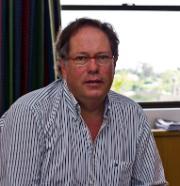
THE recently released South African Revenue Service Statistics 2013 package contains a fascinating map of South Africa indicating where the personal tax is paid, by province. It should be included in the matric syllabus so that all understand the diversity of our wealth.
Only 36% of the country’s population live in Gauteng and the Western Cape, but taxpayers in those two provinces pay 65% of the personal tax.
The remaining two-thirds of the population pay a third of the personal tax.
This information should enter debates relating to tax mix and burden. Gauteng is South Africa’s Dubai. By contrast, the Northern Cape pays less than 2% of the personal tax. Thank goodness only 2% of the population live there.
KwaZulu-Natal has almost 20% of South Africa’s population (more than 10 million people), but in spite of all the employment opportunity created by Nkandla, only 15% of the taxpayers.
The National Development Plan still remains committed to delivery being achieved through local authorities. That’s debatable. Just so long as we never go for provincial taxes. Imagine the chaos with provinces fighting for a tax base and Gauteng and the Western Cape offering lower rates because they could afford to.
The government has made a complete mess of urban tolling. But is it fair that a resident of the Northern Cape should share the cost of Gauteng’s new highways — even if all South Africa indirectly benefits from a speedier Gauteng?
Some say that the proposed employment tax incentive, scheduled for implementation in January 2015, is a lame duck. The maximum incentive of R1 000 per new employee per month in Gauteng seems minimal.
But R1 000 a month, or 50% of the basic wage, would go a long way to providing jobs in the poorer rural areas.
The problem with the employment tax incentive is that it generally only pays on new employees aged 18 to 29. The legislation does allow the ministers of finance and industry to proclaim areas not subject to the age restriction. One hopes this discretion will be widely and quickly applied.
Lester is a professor at the Rhodes Business School. See criticalthought.co.za
By Prof Matthew Lester
Photo by: Sophie Smith
Source: Sunday Times
